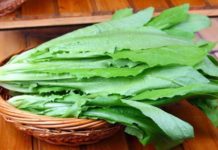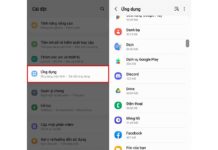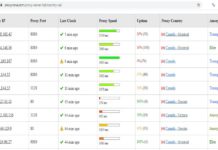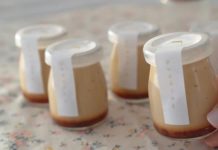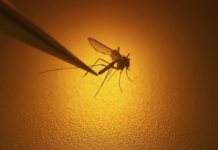Pineapple is a fruit that is good for you. Pineapple is rich in vitamin A, vitamin C, calcium, potassium, and phosphorus. While being high in fiber and energy, pineapple is low in fat and cholesterol, making it a nutritious addition to your diet to improve and maintain your health.
Pineapple contains manganese, an essential mineral for building bones and connective tissue. You don’t even have to eat a variety of fruits – a bowl of pineapple provides your body with 73% of the necessary manganese.
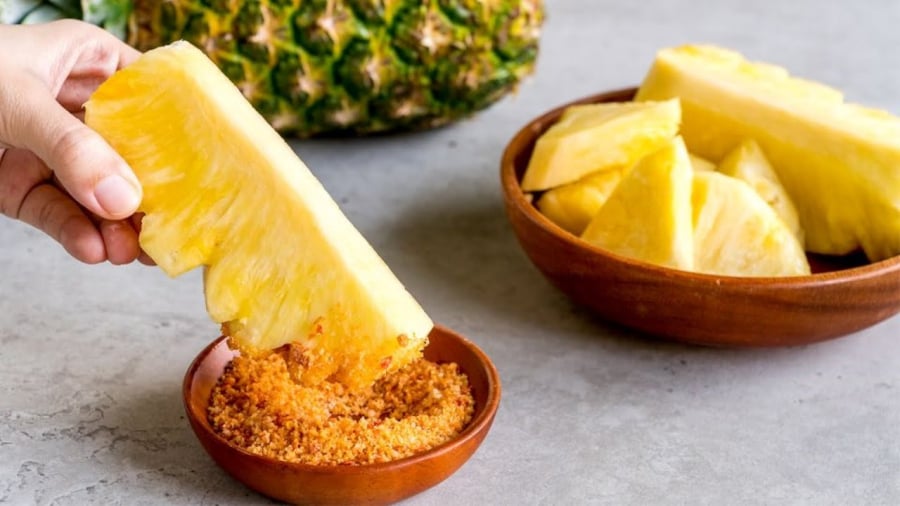
However, when you eat pineapple, you may feel a stinging sensation on your tongue. The reason is that pineapple contains bromelain – a mixture of digestive enzymes, which has many benefits in treating inflammation and infection. This enzyme is concentrated in the core and skin of the pineapple, and when it comes into contact with the sensitive skin on the tongue and around the mouth, it breaks down the proteins that cause a painful stinging sensation.
However, this sensation quickly disappears, so it is not a significant issue as it does not cause any significant harm to the body.
Here are some tips to make pineapple sweeter and eliminate the stinging sensation.
Soak in saltwater: After peeling and removing the eyes of the pineapple, cut it into bite-sized pieces. Prepare boiled water and let it cool, add a spoonful of salt and stir well. Then soak the cut pineapple in the saltwater for 30 minutes.
After the time is up, drain the water and let the pineapple dry before enjoying it. At this point, the pineapple is clean, hygienic, and does not cause a tingling sensation on the tongue.
The reason why soaking in saltwater before eating can eliminate the stinging sensation is that salt can break down the numbing substance, while making the pineapple more flavorful.
Soak in baking soda: Add a spoonful of baking soda to boiling water and let it cool (without adding salt) to make soda water. Soak the cut pineapple in it, and you can eat it directly after soaking for 2-3 minutes.
Because baking soda is also alkaline, its effect when added to water is similar to soaking in saltwater, quickly reducing the sour taste of pineapple. The pineapple will taste even sweeter and more delicious than soaking in mild saltwater, which is convenient and easy.
Blanch in 70-degree hot water: It may seem unbelievable, but this is one of the smart ways to eat pineapple. Initially, everyone thought that blanching pineapple would make it mushy. However, when the water is boiling at about 70 degrees, blanch the pineapple and then transfer it to ice water. Scoop the pineapple out to drain, and it will be extremely crispy and sweet.
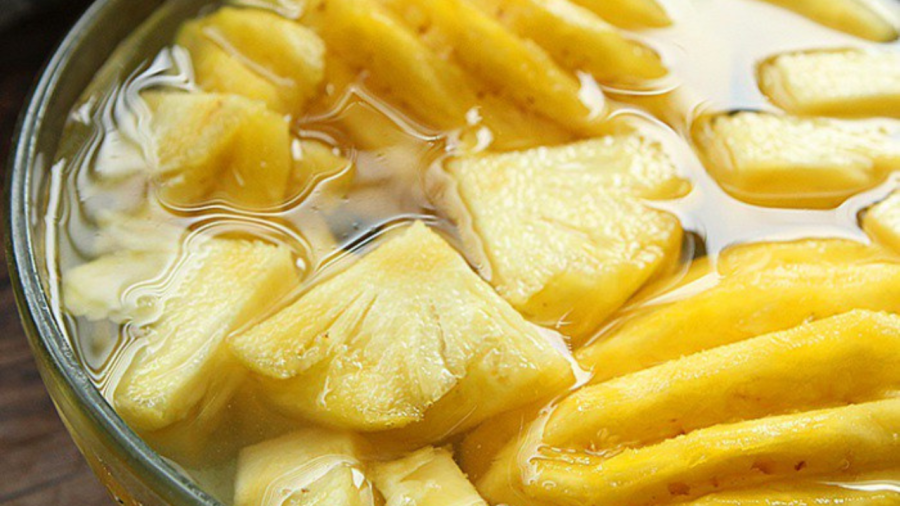
Some people should avoid eating pineapple
People with stomach problems
Associate Professor Dr. Nguyen Thi Lam – former Deputy Director of the National Institute of Nutrition warns that people with stomach problems should not eat too much pineapple, but only a small piece because pineapple contains organic acids and some enzymes that increase inflammation of the gastric and intestinal mucosa, leading to nausea and discomfort.
Overweight and obese individuals
Pineapple has a high sugar content and provides a lot of energy. If you eat too much, you may risk being overweight or obese, which is not ideal for overweight and obese individuals.
Diabetic individuals
People with diabetes should not eat too much pineapple due to its high sugar content. If diabetic individuals want to eat pineapple, they should consult their treating doctor.
People with high blood pressure
People with a history of high blood pressure may experience symptoms such as flushing, headaches, dizziness, and an increased risk of high blood pressure when consuming too much pineapple.
Pregnant women
Eating too much pineapple can stimulate uterine contractions, leading to miscarriage. This is especially true for pregnant women in the first three months.
Experts also note that you should only buy pineapple when you intend to use it immediately. If you don’t need it right away, store the pineapple in a cool place, away from sunlight, for no more than 2 to 3 days.
People with bronchial asthma, inflammation of the nasal or throat mucosa
Pineapple contains a glucoside that strongly irritates the mucous membranes, so eating too much pineapple can cause a tingling sensation on the tongue, throat numbness, and itching. Therefore, individuals with a history of inflammation of the nasal or throat mucosa, bronchial asthma should not eat too much pineapple to avoid the risk of recurrence and exacerbation…
In addition, people with bleeding or a risk of bleeding (bleeding gums, hemorrhagic fever, large wounds, women with heavy menstrual bleeding, etc.) should also avoid eating pineapple.











